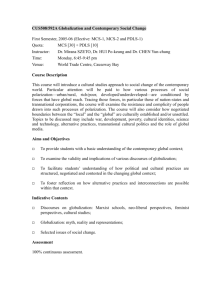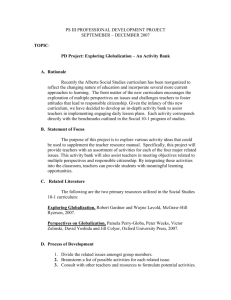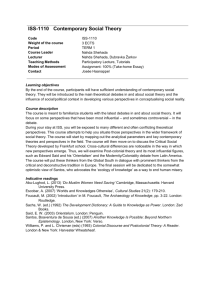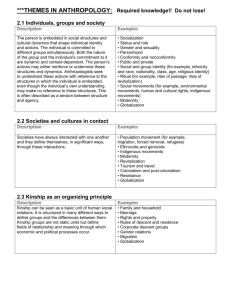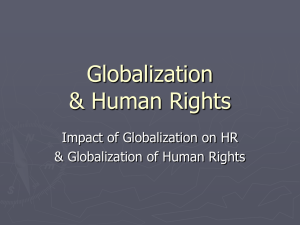ISS-4143 Contemporary Perspectives on Social Justice
advertisement
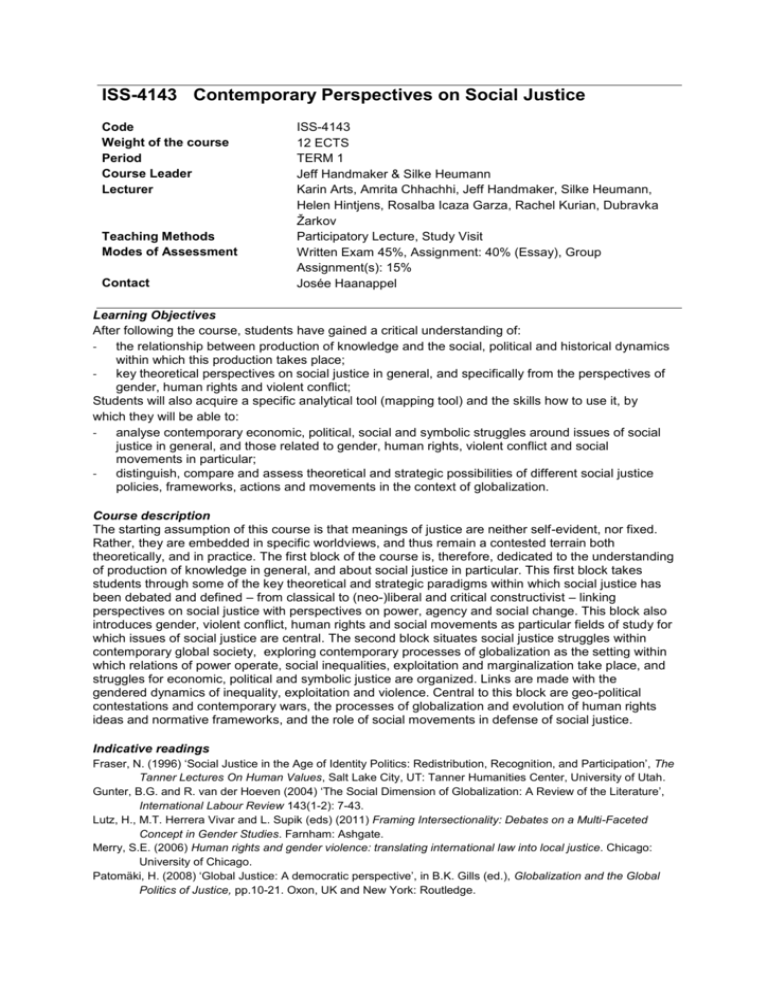
ISS-4143 Contemporary Perspectives on Social Justice Code Weight of the course Period Course Leader Lecturer Teaching Methods Modes of Assessment Contact ISS-4143 12 ECTS TERM 1 Jeff Handmaker & Silke Heumann Karin Arts, Amrita Chhachhi, Jeff Handmaker, Silke Heumann, Helen Hintjens, Rosalba Icaza Garza, Rachel Kurian, Dubravka Žarkov Participatory Lecture, Study Visit Written Exam 45%, Assignment: 40% (Essay), Group Assignment(s): 15% Josée Haanappel Learning Objectives After following the course, students have gained a critical understanding of: the relationship between production of knowledge and the social, political and historical dynamics within which this production takes place; key theoretical perspectives on social justice in general, and specifically from the perspectives of gender, human rights and violent conflict; Students will also acquire a specific analytical tool (mapping tool) and the skills how to use it, by which they will be able to: analyse contemporary economic, political, social and symbolic struggles around issues of social justice in general, and those related to gender, human rights, violent conflict and social movements in particular; distinguish, compare and assess theoretical and strategic possibilities of different social justice policies, frameworks, actions and movements in the context of globalization. Course description The starting assumption of this course is that meanings of justice are neither self-evident, nor fixed. Rather, they are embedded in specific worldviews, and thus remain a contested terrain both theoretically, and in practice. The first block of the course is, therefore, dedicated to the understanding of production of knowledge in general, and about social justice in particular. This first block takes students through some of the key theoretical and strategic paradigms within which social justice has been debated and defined – from classical to (neo-)liberal and critical constructivist – linking perspectives on social justice with perspectives on power, agency and social change. This block also introduces gender, violent conflict, human rights and social movements as particular fields of study for which issues of social justice are central. The second block situates social justice struggles within contemporary global society, exploring contemporary processes of globalization as the setting within which relations of power operate, social inequalities, exploitation and marginalization take place, and struggles for economic, political and symbolic justice are organized. Links are made with the gendered dynamics of inequality, exploitation and violence. Central to this block are geo-political contestations and contemporary wars, the processes of globalization and evolution of human rights ideas and normative frameworks, and the role of social movements in defense of social justice. Indicative readings Fraser, N. (1996) ‘Social Justice in the Age of Identity Politics: Redistribution, Recognition, and Participation’, The Tanner Lectures On Human Values, Salt Lake City, UT: Tanner Humanities Center, University of Utah. Gunter, B.G. and R. van der Hoeven (2004) ‘The Social Dimension of Globalization: A Review of the Literature’, International Labour Review 143(1-2): 7-43. Lutz, H., M.T. Herrera Vivar and L. Supik (eds) (2011) Framing Intersectionality: Debates on a Multi-Faceted Concept in Gender Studies. Farnham: Ashgate. Merry, S.E. (2006) Human rights and gender violence: translating international law into local justice. Chicago: University of Chicago. Patomäki, H. (2008) ‘Global Justice: A democratic perspective’, in B.K. Gills (ed.), Globalization and the Global Politics of Justice, pp.10-21. Oxon, UK and New York: Routledge. Sassen, S, 2003, ‘Globalization or Denationalization?’, Review of International Political Economy, 10(1), 1-22.
